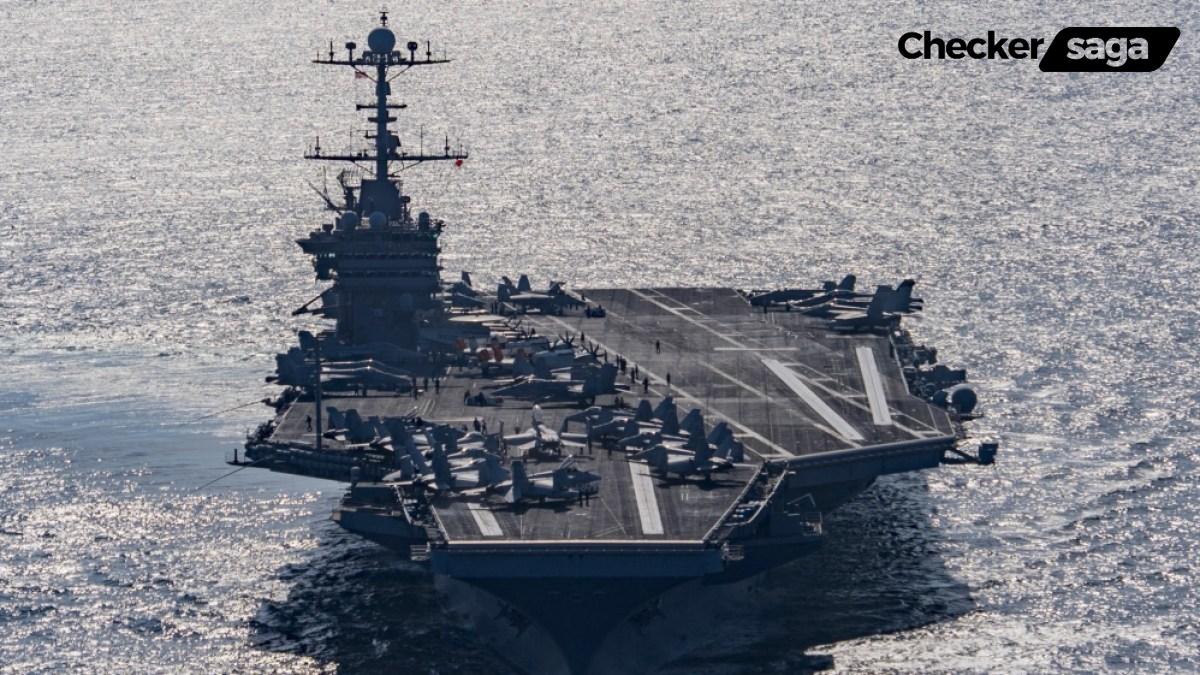In a dramatic escalation of conflict, the Houthi rebels have launched new attacks against US naval vessels, particularly the USS Harry Truman, amid rising tensions in the Red Sea. This surge in violence comes after significant US airstrikes in Yemen that reportedly killed dozens, adding fuel to an already volatile situation.
The Attacks Unfold
On Monday, the Houthis claimed responsibility for an attack on the USS Harry Truman involving a barrage of 18 missiles and drones. This attack was described by their spokesperson as retaliation for recent US military actions in Yemen. The targeting of the carrier highlights the ongoing conflict between the Houthis and US forces, which has escalated following the US’s increased military presence in the region.
US Military Response
In response, the US military confirmed that operations against the Houthi militants are actively ongoing. Over the weekend, US airstrikes targeted several key locations including the Saada province, which is a stronghold for the Houthis. These airstrikes reportedly resulted in at least 53 deaths among Houthi forces, as confirmed by local health officials. This round of attacks follows a significant period of hostilities that had calmed down after a ceasefire in Gaza earlier this year.
Impact on Global Trade
The escalation of conflict in the Red Sea has serious implications for international shipping and global oil prices. Since the Houthis resumed their attacks on Israeli-linked shipping in the area, the safety of shipping routes has been compromised, leading to concerns over disruptions in global trade. The US has reiterated its commitment to ensuring safe passage for commercial vessels in these critical waterways.
US Policy on the Houthis
President Trump has been vocal about the need to confront the Houthis until they cease their threats against shipping in the Red Sea. Officials have stated that the US will continue to take military action against the Houthis until a withdrawal of threats is observed. This strategy reflects the broader US policy in the region, which aims to curb Iranian influence and safeguard American interests.
Human Cost of Military Actions
The recent airstrikes have drawn criticism, especially after reports emerged detailing civilian casualties, including fatalities at a cancer facility in Saada. The humanitarian impact of military operations is significant as it adds to the growing number of displaced persons and casualties in Yemen, a country already suffering from years of civil strife and humanitarian crisis.
Houthi Claims and Regional Tensions
As the situation continues to evolve, the Houthis have vowed to retaliate against US actions, stating that their missile attack on the USS Truman was just a preview of their resolve. The Iranian military has also remarked on the ongoing hostilities, warning that any aggressive actions will be met with a strong response, reflecting the tensions not only between the Houthis and US forces but also involving Iran’s role as a supporter of the Houthis.
What Lies Ahead
The future remains uncertain as both sides prepare for possible further escalations. The US insists that it will maintain its military operations until the threat to Red Sea shipping is eliminated. Meanwhile, the Houthis are likely to continue their aggressive tactics in the face of American military actions. Global observers are closely watching the situation as fresh developments unfold, all while hoping for a resolution that leads to peace and stability in Yemen and the broader region.
























